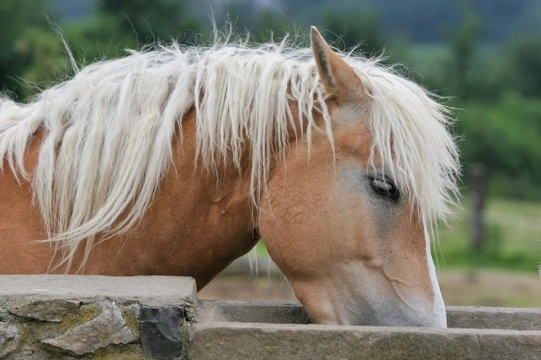
Dehydration Can Affect Your Horse's Performance
When horses get dehydrated, it not only affects their performance but it could prove life threatening too and although our climate does not boast having very long dry spells during the summer months, on the odd occasion when it does happen, you need to be prepared. As such setting in place the necessary precautions to ensure your horse is well hydrated is essential You need make sure they have free access to fresh clean water at all times even when you are at an event or competition.
Making Sure Your Horse is Well Hydrated
It is crucial for horses to have access to fresh clean water at all times but in particular during hot dry spells. If you compete your horse during the summer months, you should definitely not restrict their access to water. If you have a fussy drinker"" and they don't like the taste of the water supplied at an event, then you must make provisions to take containers of water along with you to the event.
Another trick many horse owners like to use if their mounts won't drink strange water, is to flavour it with some apple juice or mint which encourages them to drink. There are some specifically formulated products on the market that you can add to the water which also help encourage fussy drinkers.
How to Cope with Horses That Don't Drink Enough
Are you one of those owners who gets frustrated and worried that your horse is just not drinking enough? If the answer is ""yes"", then you may be best feeding them haylage because it has a higher moisture content than hay. Feeding haylagemay well reduce the chances of them suffering from colic too. If haylage is not an option because of the cost, then consider soaking their hay which is a much cheaper and effective alternative.
The Importance of Cooling Off After Exercise
It is crucial to ""cool off"" your horse after exercise on a hot day and this needs to be done as soon as possible. Cooling off your horse will reduce sweat loss and as such this helps reduce the risk of them becoming dehydrated.
Keep Your Horse in the Shade at Summer Competitions
Summer is a great time of the year because of all the events and competitions that go on around the country. It's really important to make sure you tie your horse up in a shaded area whenever possible as this will help them remain hydrated. Just by standing in the sun, a horse will lose body water without you even realising it.
The Importance of Electrolytes
It is also very important to use electrolytes which help replace all the essential salts found in the body that are lost through sweat. These should be kept in your kit along with other essential items you need to take to shows and competitions.
How to Measure Dehydration in Your Horse
Naturally the best way to measure dehydration in horses is to do a ""gold standard test"" but this is not feasible for the majority of people as it requires a blood sample being taken. This shows the level of proteins found in the plasma as well as the proportion of red blood cells in the blood as compared with the plasma. Luckily, there are far more practical ways of checking dehydration in horses which includes keeping an eye out for the following:
- A dehydrated horse will produce dark urine or may not pass any urine
- Mucous membranes will appear red and congested which is a sure sign of dehydration
What About the Skin Pinch Test?
One of the traditional ways that people used to check hydration levels in horses (and other animals) was to do a ""skin pinch test"" which is done on a horse's neck to see how long it takes for the skin to return to normal after having been pinched by counting the time down in seconds. The problem with this test is that it is not a very clear indicator of dehydration and as such people are no longer encouraged to use this method any more.
Prevention is the Best Policy
It goes without saying that preventing a horse from becoming dehydrated is crucial and as such they must be given free access to fresh, clean water at all times. If you can avoid riding out in the heat of the day, this too will help reduce the chances of them becoming dehydrated. However, if you have to take them out on exercise when it's very warm, make sure you cool them off correctly as soon as you return to the stables to avoid them sweating unnecessarily which would result is extra body water loss.
Conclusion
We don't often get heat waves in the UK but the summer months can be pretty warm which is why it's so important to make sure your horse never gets dehydrated. Not only will it affect their performance but it could be extremely dangerous and even fatal. If you are competing a lot this summer, make sure your mount always has access to water at the event. Should they be fussy drinkers, then you would need to take enough water with you in containers to ensure your horse has enough to drink at the show.
""



